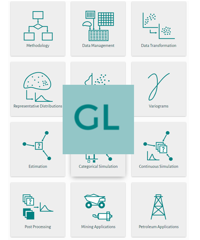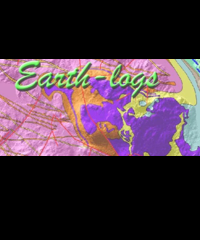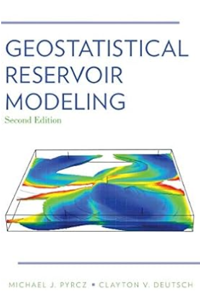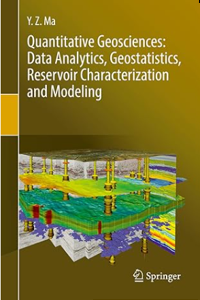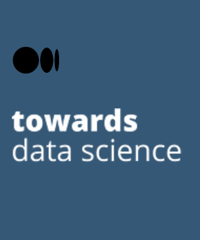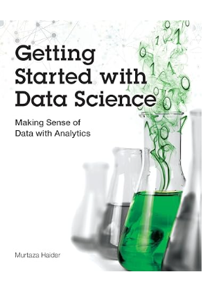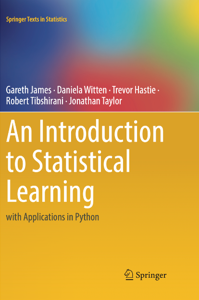Resources
Here you will find various books, websites, videos, educational resources, etc which I have found to be extremely helpful and/or interesting, both in my personal and professional life. Topics are arranged by tabs. and items under each tab are arranged by source type (website, video channel, book). Most are free, some are paid, but all are worth exploring.
I am always looking for more things to read and share- If you have anything you think should go here, please contact me, and I will look to adding it!
Websites
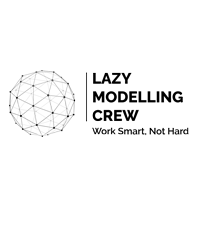 The Lazy Modeling Crew
The Lazy Modeling Crew
These four canucks put the sometimes esoteric terminology and theory of geostatistics and resource estimation in plain-speak. Most of their blog articles are readable in 5-10 minutes, and are entertaining to boot!
Sadly it has been a few years since their last post, but it is still a worthwhile (and entertaining!) read.
Geostatistics Lessons
Initiated by the University of Alberta Centre for Computational Geostatistics and edited by Jared Deutch, this website contains a series of short lessons comprising a best practices of applied geostatistics. Each lesson is presented as a separate URL, and can also be downloaded via PDF for your printer’s convenience. The content is covered under the creative commons license, meaning copy it and share it all you want, just don’t change it or charge for it, and be sure to credit the authors.
Earth-Logs
The author of several books and over 1500 blog articles spanning several decades, Steve Drury is a prolific writer in the geosciences. Most articles here summarize important primary source publications in a style which is accessible and readable to professionals, academics and non-specialists. Best of all, each blog contains a link to the peer-reviewed source article in pdf without a paywall. This is an absolute treasure trove, and if you are anything like me, you will spend hours in his extensive archives!
Video Channels
GeostatsGuy Lectures
The John Lab
Books
Geostatistical Reservoir Modeling (2nd ed)
by Clayton V. Deutsch and Michael J. Pyrcz
The second edition of this fairly comprehensive treatment of geostatistics for subsurface reservoir modeling workflows adds Michael Pyrcz as a collaborator, full color illustrations (which are always nice to have in property models), and an expanded list of topics. It also adds many workflow examples and discussions on applying theory to solve real problems in reservoir characterization.
Quantitative Geosciences: Data Analytics, Geostatistics, Reservoir Characterization and Modeling
by Y. Z. Ma
This is a great overview of how data analytics and statistics can be used in reservoir characterization. This book focuses less on the pure mathematics, and more on the philosophy and application of using data driven methods to quantify and model the subsurface, pulling out equations only where necessary (but supplying countless references for those who would like to delve deeper). The scope of topics here is almost staggering, but if you want a book that focuses less on the “how and why do these tools work”, and more on the “when and how do I use them”, this is it.
Full disclosure- I had the great fortune to work with Dr. Ma for several years, and assisted in proof reading and reviewing this book prior to publication. Hey, that’s a beautiful image on the front cover; I wonder who could have designed it? 😉
Websites
Towards data science
With over 670 thousand followers, this blog feature site uses Medium and contains articles written by over a thousand contributors from around the globe involved with data science in both practical applications and academia. You can think of this as a live online magazine written and edited by data scientists, for data scientists.
Geeks for geeks
Geeks for Geeks is primarily a computer science education and skill development platform. They host a range of free in-depth code tutorials, puzzles, projects and challenges aimed primarily at programmers with the goal of enhancing coding skills. They have several courses on data science and machine learning, focusing on how to create and use machine learning models, as opposed to the mathematics of machine learning itself. The link here brings you to their Data Science Fundamentals course, but look around and explore- They have extensive tutorials on Python, R, and SQL for data science, as well as data analysis and deep learning.
Video Channels
Steve Brunton’s Youtube Channel
Steve Brunton is a Professor of Mechanical Engineering at the University of Washington. His channel contains several free courses, including an Intro to Data Science which I recommend for anyone starting out. If you want to buff up on the mathematics, he has a course on differential equations, complex analysis, vector calculus and partial differential equations, not to mention more engineering focused topics.
Books
Getting Started with Data Science: Making Sense of Data with Analytics
by Murtaza Haider
At its heart, Data Science is about extracting information from data, making predictions, and relaying these results to others. This book illustrates all of these concepts to teach a person how to think and approach data like a data scientist. The author presents material relatively free of jargon, with many practical examples using publicly available datasets (and shows you where to get them). Most importantly, he demonstrates how to tell stories with the data, so you can best communicate your findings with others.
This is not a book on machine learning however, and focuses more on the workflow of collecting, cleaning, analyzing, and modeling data. Code is presented in R, so a basic understanding of R will help, but you can pick it up as you go along too.
Introduction to Statistical Learning
by Gareth James, Daniela Witten, Trevor Hastie, Robert Tibshirani, and Jonathan Taylor
This excellent introduction to machine learning written out of Stanford University covers all of the most commonly used statistical learning methods being applied today, and how to use them. It is an applied book, giving enough mathematics and technical details to understand how they all work, without going into the mathematical theory and proofs behind them. There are two flavors of this book with code examples either in R or Python. Pick whichever one you are more comfortable with.
Best of all, you can download it for free (though physical copies are available on Springer and Amazon), and there is even a free online class component available at Stanford Online to accompany the book (with certificate of completion available including graded assignments and exams for a fee)
Beer, beer, beer!
hello! I am currently populating this area. Come back in a few days!
